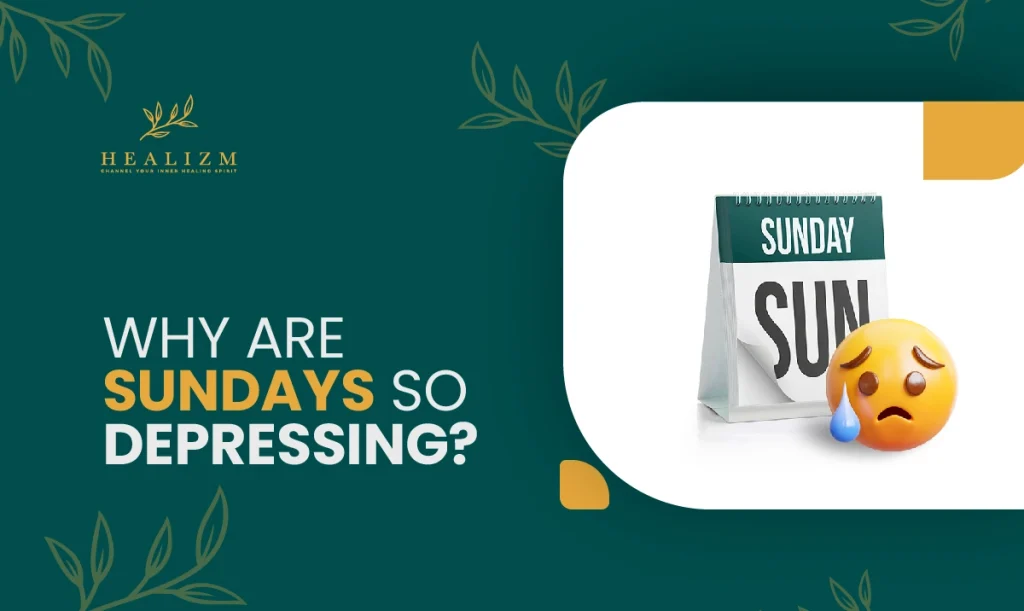
Sunday depression is a real thing.
The feeling of dread settles in mainly because it’s the last day of the weekend and the day after is the start of a weekday.
Is there any way to not feel like this every Sunday?
Let’s take a closer look at how to break the cycle of depression — especially on Sundays.
By figuring out what causes Sunday depression and finding solutions, Sundays can become more enjoyable, and your week can get off to a good start.
Why are Sundays so Depressing?
Sunday depression is a common thing people experience.
People going through it feel depressed and anxious.
Depression case studies find that job stress has become a significant concern for American adults, with 40% experiencing extreme stress and 25% citing their job as the top stressor.
Factors Contributing to Sunday Depression
1. Transition to a new week.
The weekend is over on Sunday, and the work week starts the next day.
Feeling stressed and worried about all the new tasks and duties that come with this transition is normal.
2. Routine and boredom.
On Sundays, you may find yourself bored if you do not have any plans.
Not having enough structure and stimulation can make some people feel sad and depressed.
3. Sunday blues.
Some people feel down on Sundays because the next work week is about to start.
This feeling, known as the “Sunday blues,” can make people feel hopeless, sad, and worried.
4. Weekend isolation.
When you spend the weekend by yourself, it can be very depressing when the weekend is over.
Lack of social interaction and going back to working alone during the week can make loneliness and isolation worse.
5. Work-life balance.
The start of a new work week on Sunday can be especially difficult for those who struggle with work-life balance.
If you take on too much at work, you may experience stress and burnout. As a result, your mental health will suffer.
Now talk about how to cope with these feelings.
Sunday Depression Hacks
1. Get some morning light.
Open curtains or step outside to absorb natural light; it signals your body to wake up and boosts mood.
2. Plan a pleasant activity.
Arrange something enjoyable for Sunday—a hobby, a movie night, or a nice meal—to counteract negative feelings.
3. Exercise and move.
Physical activity releases endorphins, combating Sunday blues. Take a walk, practice yoga, or engage in your favorite workout.
4. Disconnect from work.
Limit work-related activities on Sundays. Avoid checking emails or thinking about work matters.
5. Prepare for the week ahead.
Outline tasks for the upcoming week; it eases the stress of unknown responsibilities.
6. Positive reframing.
See Sundays as an opportunity for self-care, relaxation, and rejuvenation instead of focusing on work.
7. Seek social interaction.
Connect with friends or family; socializing uplifts spirits and creates a positive end to the weekend.
8. Mindfulness and relaxation.
Practice meditation, deep breathing, or mindfulness exercises to reduce stress and calm the mind.
9. Set a sleep routine.
Maintain consistent sleep patterns, ensuring restful sleep on Sunday nights.
10. Consider professional help.
If Sunday depression persists and affects daily life, get guidance from depression treatment centers.
To Conclude
Sundays can feel depressing due to work stress and routine boredom.
Organize and plan tasks for the upcoming week to reduce anxiety about pending responsibilities.
If you need professional guidance, reach out to us at Healizm.
FAQs
What is National Depression Screening Day 2023?
National Depression Screening Day in 2023 is an awareness event aimed at providing accessible depression screenings to individuals across various communities.
It aims to educate and offer resources for individuals experiencing symptoms of depression. This event often includes free, confidential screenings at clinics, schools, or community centers.
Can I go to urgent care for anxiety and depression?
Urgent care centers can offer initial assessments and immediate support for individuals experiencing acute anxiety or distress.
They can provide guidance, evaluate symptoms, and offer referrals to mental health specialists for ongoing care.
However, for comprehensive and ongoing treatment, consulting a mental health professional or therapist is recommended.
How can I find therapists for teenage depression near me?
Finding therapists specialized in treating teenage depression near your location can be done through various channels. Consider using online directories.
